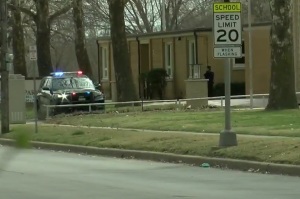School to Offer Full Range of Birth Control to Students Over 11
A middle school in Maine will become one of few in the nation to make contraceptives, including birth-control pills, available to students as young as 11.
After an outbreak of pregnancies among middle school girls, education officials in Portland decided in a rare move to allow a health center at King Middle School to offer a full range of contraception.
Parents were appalled they were even debating the issue at all.
"We're not educating our kids," said one parent during a school committee meeting Wednesday in Portland, according to CNN. "We're actually avoiding our responsibility. And that's sad."
Portland's school nurse coordinator, Amanda Rowe, defended the new policy saying that although they sit down with students and advise them intercourse is not a good choice, some are going to do it anyway.
"[T]here are some who persist – even though we don't like to think about that – in being sexually active, and they need to be protected," said Rowe.
Five of 134 students who visited King Middle School's health center last year reported being sexually active. There were seven pregnancies reported in the last five years at Portland's three middle schools, said Douglas Gardner, director of Portland's Health and Human Services Department, according to The Associated Press.
Although a full range of contraception will be made available at the health center – where condoms have been available since 2000 – the birth control will be given out only after extensive counseling, and no prepubescent children will get it, according to Portland School Committee member Robert O'Brien.
Furthermore, the committee approved on Wednesday a plan in which students are required to get parental permission to access the school's health center, although treatment is confidential under Maine state law.
Expressing concern that kids would have access to any form of birth control with the support of parents, Michael Heath, executive director of the Christian Civic League of Maine, said, "It's at best troubling, at worst an outrage," according to AP.
Parents, meanwhile, are concerned that teaching kids to delay sex and then supporting contraception distribution in middle school sends a mixed message.
Patty Devine, who oversees women's health services clinics for the Erie County Health Department, however, said studies have shown that knowledge about sexual activity and contraception does not lead to increased sexual activity.
"The higher the [sex] education level, the more likely they are to delay sexual activity," she said.
And according to studies, most kids want to learn about both contraception and abstinence.
A 2005 Pew Forum study found that 78 percent of kids want public schools to teach about birth control and 76 percent think schools should teach kids to abstain from sex until marriage.
At the same time, a recent study by the National Campaign to Prevent Teen Pregnancy showed that 76 percent of teens think religious leaders should do more to educate them about the risks of teenage sex and nearly half (47 percent) say parents influence their decisions about sex more than friends, religious leaders, siblings, teachers, media and sex educators.





























